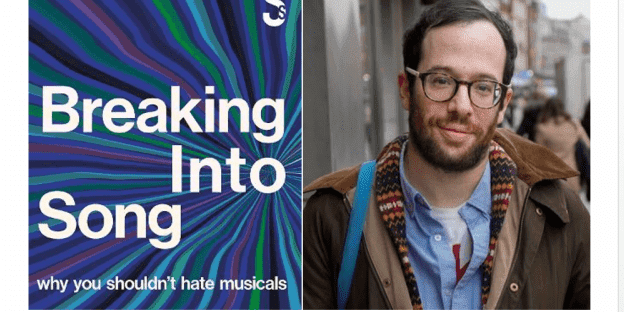I was so excited to read this book and to come away fully equipped with the verbal ammunition I need for the defence of my biggest passion, musical theatre. But, upon closing the back cover, my bank of pithy remarks remains sadly empty. With the exception of a few chapters that explore the importance of new musicals, new talent and new systems, Breaking into Song struggles to clearly draw out and succinctly communicate its main arguments, which can be categorised as follows: the power of music; the misconceptions and issues with how musicals are portrayed, even by their fans, and the need for musical theatre innovation.
I will however start with the areas where Adam Lenson successfully draws emphasis to some incredibly important topics. The nature in which Lenson describes the need for new talent and the need to redefine how the musical is perceived is eye-opening. Interestingly, Lenson appears to favour the American musical scene over the UK, often describing the former as more progressive. In fact, in what is an amusingly accurate comparison, Lenson describes how America are fortunate enough to be seeing fresh musicals appear written by the likes of Lin-Manuel Miranda whilst, here in the UK, we are stuck in a cycle of waiting for Andrew Lloyd Webber’s next new musical… cue Cinderella.
Not that I personally have anything against Andrew Lloyd Webber, but I completely agree that there needs to be a shift in our attitude of musical consumerism and musical production. To me, however, this does not have to be a choice; new does not need to replace tradition. Comparatively, throughout Breaking into Song, there is a strong sense of pitching the ‘vintage’ against the ‘modern’, when in reality they should coexist as, just like with history, the past is a crucial education for the present day.
Further praise for Breaking into Song comes through its power to inspire self-assessment. Breaking into Song has proactively encouraged me to reassess my own approach to musical theatre, particularly through my reviewing. Lenson talks a lot to how it is often the fans that contribute to the damaging portrayal of the musical, citing as evidence a few of Michael Billington’s references to “what a musical should be”: fun and frivolous. So if nothing more, I will certainly go away after reading this book with a new awareness of how I frame my passion and how I communicate this to the people around me.
There is an element of this book that falls victim to a trap ironically set up by itself: it is written predominantly for an audience that dislikes musicals, but it will predominantly be read by musical lovers. The latter, as I am, are no stranger to the realities of musicals, to the power of music and how these work together. I know that a musical can do fun and can do serious. I know that musicals have the power to tell stories otherwise unattainable and are often the perfect medium for daunting and heavy realities. It is for this reason that a lot of Lenson’s assertions are much less ground breaking than he would perhaps believe and do, at times, teeter on patronisation.
Tone-wise, Breaking into Song, for want of a better expression, is rather in your face – it’s quite forceful, incredibly confident and very self-assured. This does, however, lack sufficient backing; Lenson’s claims are not always rooted in evidence, making it increasingly hard to buy into his reasoning or to build trust in the authority and expertise of the writer himself. At times, the book can even come across as too glowing, too abstract – I almost believe that any person with a passion could write a book similar to this one.
Lenson’s writing style is certainly accessible, but it revolves around listing and rephrasing the same sentiments, often across three consecutive sentences. There is therefore an element of repetition and monotony. To me, this is a result of the challenge to condense abstract notions down into digestible and tangible snippets. This book is also littered with what can only be described as bad analogies and jarring comparisons, for example: religion, lasagne and ‘poopy babies’. To me, these are disjointed and unappealing. Having an entire chapter exploring the ‘poopy babies’ metaphor (how a first draft musical is utter rubbish but can, with care and nurture, become a worldwide sensation) seems to me like Lenson has entirely, and in bad taste, forgotten who his audience is.
Creatively, I don’t think the writing is quite there. In substance, I think the book is lost a little to its abstraction. But in terms of encouraging the start of some vital conversations, Breaking into Song cannot be faulted. There are some important lessons here and whilst I certainly won’t be recommending this to a musical sceptic, I may pass it on to a fellow musical lover to get the ball rolling and some of those conversations begun.
Breaking into Song: why you shouldn’t hate musicals
By Adam Lenson
Salamander Street Ltd., 2021

